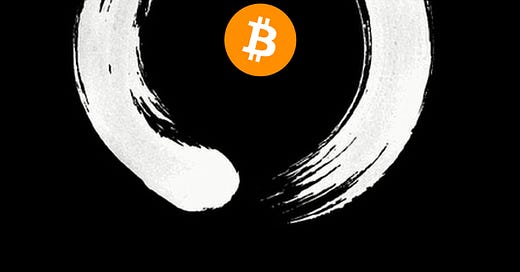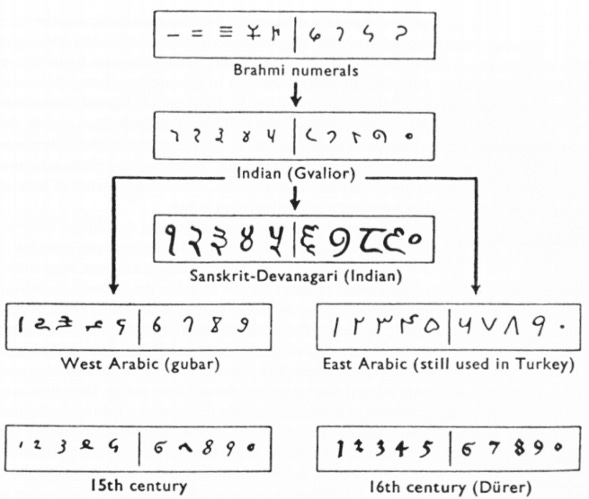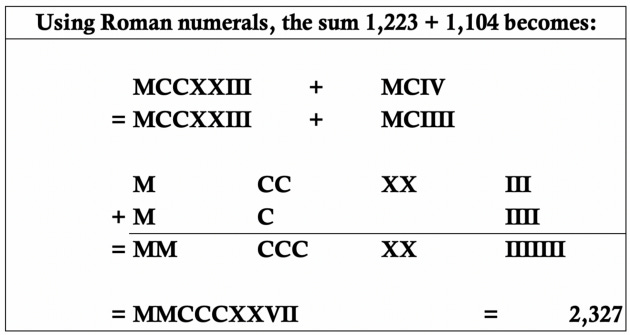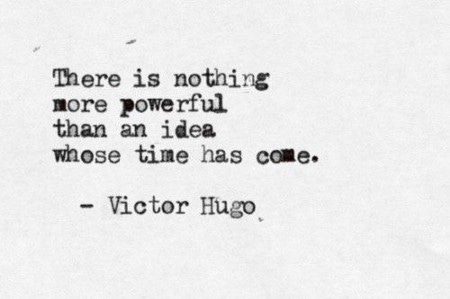

Discover more from The Freedom Analects
The Number Zero and Bitcoin (Part 1)
Bitcoin is an invention as impactful as its distant digital ancestor: the number zero.
Satoshi gave the world Bitcoin, a true “something for nothing.” His discovery of absolute scarcity for money is an unstoppable idea that is changing the world tremendously, just like its digital ancestor: the number zero.
Zero is Special
“In the history of culture the discovery of zero will always stand out as one of the greatest single achievements of the human race.”—Tobias Danzig, Number: The Language of Science
Many believe that Bitcoin is “just one of thousands of cryptoassets”—this is true in the same way that the number zero is just one of an infinite series of numbers. In reality, Bitcoin is special, and so is zero: each is an invention which led to a discovery that fundamentally reshaped its overarching system—for Bitcoin, that system is money, and for zero, it is mathematics. Since money and math are mankind’s two universal languages, both Bitcoin and zero are critical constructs for civilization.
For most of history, mankind had no concept of zero: an understanding of it is not innate to us—a symbol for it had to be invented and continuously taught to successive generations. Zero is an abstract conception and is not discernible in the physical world—no one goes shopping for zero apples. To better understand this, we will walk down a winding path covering more than 4,000 years of human history that led to zero becoming part of the empirical bedrock of modernity.
*Join me at the biggest event of the year, Bitcoin 2022. See below for 10% discount on tickets*
“Bitcoin 2022 Conference is the biggest gathering of the Bitcoin ecosystem in the world. Join me and the movers and shakers shaping the Bitcoin future next April 6-9th in Miami Florida for Bitcoin 2022 Conference.”
Paying with Fiat? 10% Affiliate link: http://tixr.com/pr/robertbreedlove/26217
Paying with Bitcoin? Use promo code: BREEDLOVE.
Numerals, which are symbols for numbers, are the greatest abstractions ever invented by mankind: virtually everything we interact with is best grasped in numerical, quantifiable, or digital form. Math, the language of numerals, originally developed from a practical desire to count things—whether it was the amount of fish in the daily catch or the days since the last full moon. Many ancient civilizations developed rudimentary numeral systems: in 2000 BCE, the Babylonians, who failed to conceptualize zero, used two symbols in different arrangements to create unique numerals between 1 and 60:
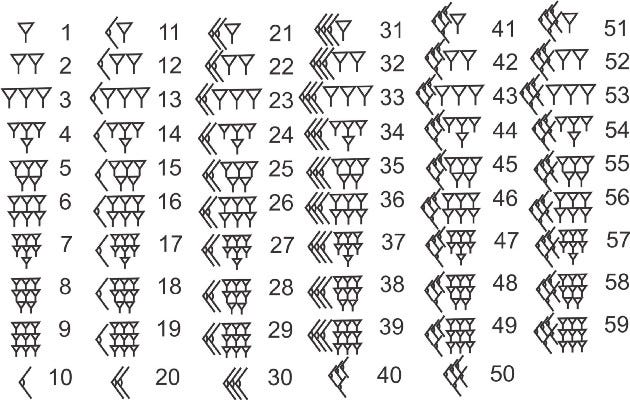
Vestiges of the base-60 Babylonian cuneiform system still exist today: there are 60 seconds in a minute, 60 minutes in an hour, and 6 sets of 60 degrees in a circle. But this ancient system lacked a zero, which severely limited its usefulness. Ancient Greeks and Mayans developed their own numeral systems, each of which contained rough conceptions of zero.
*Looking to earn yield on some of your long-term Bitcoin holdings? Try Tantra Labs*
Put your Bitcoin to work. Earn up to 12% interest back on Bitcoin with Tantra: Start Earning Today
However, the first explicit and arithmetic use of zero came from ancient Indian and Cambodian cultures. They created a system with nine number symbols and a small dot used to mark the absence of a number—the original zero. This numeral system would eventually evolve into the one we use today:
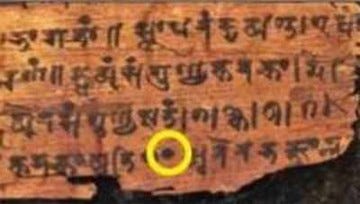

In the 7th century, the Indian mathematician Brahmagupta developed terms for zero in addition, subtraction, multiplication, and division (although he struggled a bit with the latter, as would thinkers for centuries to come). As the discipline of mathematics matured in India, it was passed through trade networks eastward into China and westward into Islamic and Arabic cultures. It was this western advance of zero which ultimately led to the inception of the Hindu-Arabic numeral system—the most common means of symbolic number representation in the world today:
The Economization of Math
When zero reached Europe roughly 300 years later in the High Middle Ages, it was met with strong ideological resistance. Facing opposition from users of the well-established Roman numeral system, zero struggled to gain ground in Europe. People at the time were able to get by without zero, but (little did they know) performing computation without zero was horribly inefficient. An apt analogy to keep in mind arises here: both math and money are possible without zero and Bitcoin, respectively—however both are tremendously more wasteful systems without these core elements. Consider the difficulty of doing arithmetic in Roman numerals:
Calculation performed using the Hindu-Arabic system is significantly more straightforward than with Roman numerals—and energy-efficient systems have a tendency to win out in the long run, as we saw when the steam engine outcompeted animal-sourced power or when capitalism prevailed over socialism (another important point to remember for Bitcoin later). This example just shows the pains of addition—multiplication and division were even more painstaking. As Amir D. Aczel described it in his book Finding Zero:
“[The Hindu-Arabic numeral system] allowed an immense economy of notation so that the same digit, for example 4, can be used to convey itself or forty (40) when followed by a zero, or four hundred and four when written as 404, or four thousand when written as a 4 followed by three zeros (4,000). The power of the Hindu-Arabic numeral system is incomparable as it allows us to represent numbers efficiently and compactly, enabling us to perform complicated arithmetic calculations that could not have been easily done before.”
*Learn from the experts at IBAC what role Bitcoin plays as an emerging investable asset, in the preservation of long term wealth*
IBAC assists central banks and sovereign wealth funds succeed in their digital asset investments: https://www.ibac.io/
Roman numeral inefficiency would not be tolerated for long in a world enriching itself through commerce. With trade networks proliferating and productivity escalating in tandem, growing prospects of wealth creation incentivized merchants to become increasingly competitive, pushing them to always search for an edge over others. Computation and record-keeping with a zero-based numeral system was qualitatively easier, quantitatively faster, and less prone to error. Despite Europe’s resistance, this new numeral system simply could not be ignored: like its distant progeny Bitcoin would later be, zero was an unstoppable idea whose time had come:
Thank you for reading The Number Zero and Bitcoin (Part 1).
PODCAST
SOCIAL
SUPPORT
Send Bitcoin to my PayNymID: +tightking693
BUSINESSES I LIKE
Subscribe to The Freedom Analects
Written works exploring truth, power, freedom, money, economics, virtue, sovereignty, philosophy, and other enigmas of existence.

